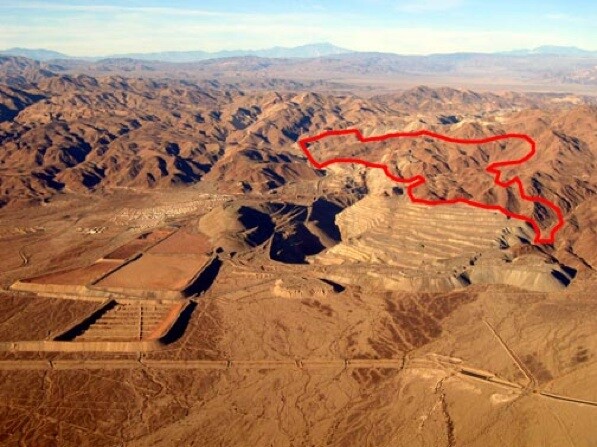Supreme Court Denies Hearing to Place Garbage Dump Next to Joshua Tree National Park

After two decades, a battle to preserve desert land has taken a significant step. The United States Supreme Court on Monday declined to hear a case that could have led to what environmentalists call "the largest garbage dump in the world," a site surrounded by Joshua Tree National Park on three sides.
"We feel like we've had a stay of execution here," said Donna Charpied, who, along with her husband Larry, has been fighting the project two miles from their Desert Center home for two decades. A lower court sided with the two when they and the National Parks Conservation Association challenged a land transfer between the Bureau of Land Management and Kaiser Ventures LLC, based in Ontario.
Kaiser wanted to convert part of an old mine at Eagle Mountain into a landfill that would serve Los Angeles County--it would eventually be sold to the Sanitation Districts of Los Angeles County--but needed some government land to fully realize the project. The BLM, eying habitat for desert tortoises owned by Kaiser, agreed to a land swap.
The 9th Circuit Court of Appeals refused to overturn the lower court's decision, prompting Kaiser to go forward petitioning the U.S. Supreme Court, a move recently opposed by the U.S. Department of Interior, which oversees the BLM. Over 106,000 petitions from people all over the country were also directed to the government after action alerts were sent out by the Natural Resources Defense Council and CREDO Action.
For more on this issue...
KCET's environmental commentator Char Miller, Director of Environmental Analysis at Pomona College, explains the background of the Eagle Mountain landfill. Read it here.
"We shouldn't be sending trash to our most beautiful places," said David Lamform, NPCA's California Deserts Program Manager.In its ruling, the 9th Circuit said Kaiser will have to address three issues, including the consideration of alternative sites, in order for the project to continue. That just might happen.
"We have to sit down with BLM and discuss with them what alternatives they think would be appropriate for study," Terry Cook, Kaiser's executive vice president and general counsel, told the Riverside Press-Enterprise. "Then we'll decide what may be the best path and how to proceed." The company said the project is environmentally sound, would have brought new jobs to the area and provided conservation funding.
In the meantime, the county's biggest producer of trash, Los Angeles, will continue to work towards becoming a zero waste city while many nearby residents and visitors will be breathing a sigh of relief as they celebrate the park's 75th anniversary.